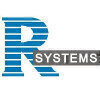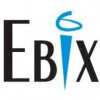Add office photos
Employer?
Claim Account for FREE
Microsoft Azure
4.5
based on 23 Reviews
Company Overview
Company Locations
Working at Microsoft Azure
Company Summary
Overall Rating
4.5/5
based on 23 reviews
22% above
industry average
Highly rated for
Company culture, Work-life balance, Skill development
Work Policy
Monday to Friday
69% employees reported
Flexible timing
78% employees reported
No travel
83% employees reported
Day shift
100% employees reported
View detailed work policy
Top Employees Benefits
Job/Soft skill training
5 employees reported
Office cab/shuttle
4 employees reported
Cafeteria
4 employees reported
Health insurance
4 employees reported
View all benefits
About Microsoft Azure
Founded in--
India Employee Count--
Global Employee Count--
Headquarters--
Office Locations
--
Websiteazure.microsoft.com
Primary Industry
Other Industries
--
Are you managing Microsoft Azure's employer brand? To edit company information,
claim this page for free
Managing your company's employer brand?
Claim this Company Page for FREE
Microsoft Azure Ratings
based on 23 reviews
Overall Rating
4.5/5
How AmbitionBox ratings work?
5
13
4
8
3
2
2
0
1
0
Category Ratings
4.5
Company culture
4.5
Work-life balance
4.5
Skill development
4.3
Job security
4.3
Salary
4.3
Work satisfaction
4.0
Promotions
Microsoft Azure is rated 4.5 out of 5 stars on AmbitionBox, based on 23 company reviews. This rating reflects a generally positive employee experience, indicating satisfaction with the company’s work culture, benefits, and career growth opportunities. AmbitionBox gathers authentic employee reviews and ratings, making it a trusted platform for job seekers and employees in India.
Read more
Microsoft Azure Reviews
Top mentions in Microsoft Azure Reviews
Compare Microsoft Azure with Similar Companies
Change Company | Change Company | Change Company | ||
|---|---|---|---|---|
Overall Rating | 4.5/5 based on 23 reviews | 3.7/5 based on 5.4k reviews | 3.7/5 based on 4.1k reviews | 3.9/5 based on 3.2k reviews |
Highly Rated for | Skill development Work-life balance Company culture | Work-life balance Job security | Company culture | Salary Job security Company culture |
Critically Rated for | No critically rated category | Promotions Salary | Promotions Work satisfaction | Promotions |
Primary Work Policy | - | Hybrid 71% employees reported | Hybrid 91% employees reported | Hybrid 96% employees reported |
Rating by Women Employees | 4.7 Excellent rated by 6 women | 3.8 Good rated by 1.2k women | 3.8 Good rated by 985 women | 4.0 Good rated by 987 women |
Rating by Men Employees | 4.4 Good rated by 11 men | 3.7 Good rated by 3.8k men | 3.7 Good rated by 2.9k men | 3.9 Good rated by 2.1k men |
Job security | 4.3 Good | 3.9 Good | 3.5 Good | 3.9 Good |
View more
Microsoft Azure Salaries
Microsoft Azure salaries have received with an average score of 4.3 out of 5 by 23 employees.
Support Engineer
(12 salaries)
Unlock
₹6.3 L/yr - ₹20.7 L/yr
Senior Software Engineer
(9 salaries)
Unlock
₹26 L/yr - ₹50 L/yr
Software Engineer
(9 salaries)
Unlock
₹27 L/yr - ₹52 L/yr
Software Developer
(7 salaries)
Unlock
₹43 L/yr - ₹60 L/yr
Software Engineer2
(5 salaries)
Unlock
₹21.6 L/yr - ₹50 L/yr
Software Development Engineer II
(5 salaries)
Unlock
₹27 L/yr - ₹50.4 L/yr
Site Reliability Engineer 2
(5 salaries)
Unlock
₹32 L/yr - ₹32 L/yr
Cloud Consultant
(4 salaries)
Unlock
₹13.3 L/yr - ₹28 L/yr
Senior Program Manager
(4 salaries)
Unlock
₹1 Cr/yr - ₹1.5 Cr/yr
Data Analyst
(4 salaries)
Unlock
₹3 L/yr - ₹27.1 L/yr
Microsoft Azure News
View all
Siemens and Microsoft Transform Industry with AI Innovation
- Siemens and Microsoft introduced an industrial AI foundation model at Hannover Messe, enhancing industrial engineering and automation processes.
- The foundation model integrates digital production systems and virtual programmable logic controllers (vPLCs).
- Siemens aims to position itself as a unified tech entity by utilizing industrial AI across its product portfolio.
- Siemens has collaborated with Nvidia, Accenture, AWS, and Microsoft Azure for its digital transformation initiatives.
VoIP | 1 Apr, 2025

What to Consider When Choosing a Cloud Provider in 2025
- Factors to consider when choosing a cloud service provider in 2025 include security, compliance, performance, cost, scalability, customer support, integrations, vendor reputation, and innovation.
- Discounts for long-term commitments are common, while vendor lock-in risk can be mitigated through open-source technologies and multi-cloud strategies.
- Cloud security operates on a shared responsibility model, with providers handling infrastructure security and customers managing workload security.
- Key cloud provider considerations include compliance, data encryption, network security, regulatory standards, performance, reliability, uptime guarantees, pricing transparency, and long-term cost implications.
- Scalability, resource scaling, customization, and flexibility are crucial aspects to evaluate when selecting a cloud provider.
- Customer support, SLAs, technical support availability, disaster recovery, and service-level agreements are essential metrics in assessing a cloud service provider's quality.
- Integrations, compatibility, hybrid/multi-cloud support, industry expertise, client testimonials, innovation, and future-readiness are factors that influence the choice of a cloud provider.
- Cloud computing market leaders include Amazon Web Services, Microsoft Azure, and Google Cloud Platform, which collectively hold a significant share of the market.
- Innovation, investment in emerging technologies, future roadmaps, data management, geographic location, data sovereignty, and flexibility in contracts are additional considerations when selecting a cloud provider.
- Choosing a cloud provider involves a comprehensive evaluation of various factors such as pricing, security, scalability, compliance, reliability, and ease of integration.
Cloudwards | 28 Mar, 2025

Large cloud providers won’t fix the sovereignty problem
- Large cloud providers like AWS, Microsoft Azure, and Google Cloud dominate the industry, but their scale does not equate to sovereignty for users, leading to trade-offs in control and privacy.
- GDPR fines totaling billions have been issued showing a disregard for user consent, with penalties increasing for privacy violations in centralized data handling by tech giants.
- Data breaches in cloud environments have been on the rise, with a high percentage involving misconfigurations, unauthorized access, and vendor vulnerabilities.
- Concerns over data sovereignty have led to the introduction of legislation in over 140 countries, with initiatives like France's 'Cloud de confiance' label and Germany's restrictions on Microsoft 365.
- The EU and other nations are taking steps to protect sensitive data from extraterritorial laws, such as the US CLOUD Act, highlighting the importance of digital sovereignty in critical infrastructure.
- Australia and Sweden have also faced challenges with US cloud services due to data transfer issues and legal conflicts, prompting discussions on the need for national regulatory frameworks.
- Centralized control introduces risks and accountability gaps, undermining public trust and highlighting the limitations of current cloud governance structures.
- Efforts like Gaia-X and EuroStack aim to offer European alternatives that prioritize privacy, interoperability, and reduced reliance on American hyperscalers, signaling a shift towards more sustainable and transparent cloud solutions.
- In response to customer demands for better pricing and transparency, some providers are offering reduced egress fees and clearer billing models, signaling a growing awareness of the need for change in the industry.
- Building a digital future that prioritizes autonomy, privacy, and sustainability requires rethinking infrastructure and data governance practices to empower users and reduce dependency on centralized cloud services.
- Sovereignty in data management comes from decentralized, secure solutions like Hivenet, which offer encryption, distributed storage, and reduced carbon footprint while giving users full control over their data access.
Medium | 26 Mar, 2025

‘Most Data Centres Are Not Ready for Liquid Cooling’, says Oracle Exec on NVIDIA Blackwell
- Oracle Cloud Infrastructure (OCI) is introducing NVIDIA’s Blackwell Ultra GPUs to its cloud platform, necessitating new infrastructure solutions like liquid cooling in data centres.
- Senior vice president at OCI, Karan Batta, highlighted the challenge of managing heat from the new GPUs due to most data centres not being equipped for liquid cooling.
- Cloud providers face decisions on cooling methods and must focus on effective integration within data centre designs.
- Differentiation among cloud providers lies in data centre design and operational management of GPU clusters for high uptime and minimal failures.
- The Blackwell Ultra GPUs, built on the Blackwell architecture, offer enhanced AI performance and are part of Oracle’s zettascale cloud computing clusters.
- Oracle collaborates with Google and Microsoft Azure to establish multi-cloud partnerships by deploying OCI within their data centres.
- OCI partners with NVIDIA AI Enterprise to accelerate AI adoption, offering over 160 AI tools and enabling faster deployment and customer support.
- The collaboration between Oracle and NVIDIA AI Enterprise aims to support diverse AI use cases and streamline generative AI model deployment.
- Oracle’s distributed cloud approach extends to public regions, Government Clouds, sovereign clouds, and specialized cloud services such as OCI Dedicated Region and Roving Edge Devices.
- Nomura Research Institute (NRI) in Japan uses Oracle Alloy with NVIDIA Hopper GPUs for customised cloud services and plans to deploy NVIDIA AI Enterprise for AI initiatives.
Analyticsindiamag | 22 Mar, 2025

Comparing Wisdom Server with Other AI Cloud Computing Platforms
- Wisdom Server is a high-performance AI cloud computing platform designed specifically for AI workloads, utilizing NVIDIA GPUs to optimize deep learning and neural network training.
- In comparison to other platforms such as AWS, Google Cloud, and Microsoft Azure, Wisdom Server offers pre-configured AI frameworks, flexible pricing models, and lower costs for GPU acceleration.
- While AWS and Google Cloud provide GPU instances, they require manual optimization for AI workloads, whereas Wisdom Server comes pre-configured for AI development.
- In terms of cost, Wisdom Server offers more affordable and transparent pricing compared to offerings from AWS, Google Cloud, and Microsoft Azure.
Medium | 21 Mar, 2025

Centralized data infrastructure violates Web3’s core of decentralization
- Michael O’Rourke discusses the need for decentralized infrastructure in open data to align with its philosophy of autonomy and censorship resistance.
- Open data's shift to decentralized infrastructure can solve vulnerabilities for user applications and has various use cases like hosting DApps, trading bots, and sharing research data.
- Affordable training and inference of large language models (LLMs) are highlighted, showcasing the cost differences between closed-source centralized AI models and open-source options like DeepSeek R1.
- Decentralized node runners can support the development of open-source LLMs by serving as AI endpoints, unlike centralized platforms like OpenAI.
- Decentralized infrastructure protocols empower operators to deploy gateways on permissionless networks, tapping into an emerging market with lower entry barriers.
- Decentralized computing resources on platforms like Akash offer customized services at significantly lower prices, benefiting the AI training and inference market.
- In the research domain, blockchain-based zero-knowledge ML models enable trustless data sharing and preservation of privacy, offering researchers access to decentralized infrastructure rewards.
- Centralized data hosting platforms like AWS, Google Cloud, and Microsoft Azure face reliability issues due to single points of failure, emphasizing the need for decentralized protocols in app hosting.
- The article discusses incidents where centralized tech failures affected user access, underscoring the resilience and reliability benefits of decentralized infrastructure.
- Web3 RPC market size and the growth potential of decentralized infrastructure are highlighted, with a call to pivot towards decentralized infrastructure for open data transfers.
Coin Telegraph | 11 Mar, 2025

The Future of Multi-Cloud: How AI-Driven Strategies Are Driving Cloud Agility and Ending Vendor Lock-In
- Major cloud outages have highlighted the risks of vendor lock-in, prompting a shift toward multi-cloud adoption across AWS, Microsoft Azure, Google Cloud, and private cloud environments.
- AI-driven cloud strategies are crucial for seamless integration, cost control, and security maintenance in a multi-cloud environment.
- Multi-cloud adoption offers businesses flexibility, cost optimization through AI tools, and enhanced security compliance in regulated sectors.
- Kubernetes plays a key role in ensuring applications run smoothly across various cloud platforms in multi-cloud setups.
- AI integrated with Kubernetes automates workload distribution and resource optimization in complex multi-cloud architectures.
- AI serves as a critical enabler for managing the complexity of multi-cloud deployments, predicting failures, adjusting resources, and enhancing security.
- AI-powered automation streamlines cloud operations, ensures optimal workload deployment, and mitigates cyber threats in real time.
- AI-native multi-cloud platforms will become more prevalent, driving efficiency gains, cloud security, cost optimization, and workload orchestration.
- The future of cloud computing lies in AI-powered multi-cloud ecosystems that prioritize flexibility, resilience, and efficiency.
- AI-driven multi-cloud strategies are positioned to lead businesses in the digital economy by enhancing agility, efficiency, and cost optimization.
TechBullion | 5 Mar, 2025

How the collapse of local cloud provider caused biz continuity issues in UK government
- The collapse of a local cloud hosting service caused business continuity issues in the UK government.
- UKCloud and its parent company Virtual Infrastructure Group were forced into liquidation in October 2022.
- The UK government had contracts with UKCloud, which had clients including central and local governments, the police, the Ministry of Defence, and the NHS.
- The dominance of leading cloud vendors like AWS, Microsoft Azure, and Google limits the government's choices and the effort to introduce UK-based competition has caused disruption.
The Register | 3 Mar, 2025

A Comprehensive Guide to IAM in Object Storage
- IAM, service IDs, and service credentials play a crucial role in securing and managing access to object storage services.
- IAM allows organizations to control access to resources, define roles, policies, and manage permissions across teams.
- Service IDs represent applications or services, enabling precise control over access to object storage resources.
- Service credentials provide authentication details for secure programmatic access to object storage services.
- HMAC credentials are essential for signing API requests and ensuring integrity in object storage systems.
- IAM best practices include implementing least privilege, regular audits, and secure credential management.
- Major cloud providers like AWS, Google Cloud, and Microsoft Azure offer object storage services with IAM implementations.
- Understanding IAM concepts and compliance requirements is essential for securing data stored in the cloud.
- Stay informed about the latest developments in IAM to maintain robust security in object storage implementations.
- Effective IAM, service IDs, and credentials management ensure data security, accessibility, and compliance.
Dzone | 25 Feb, 2025

Optimising Africa’s Use of Public Cloud Infrastructure
- Organizations have significantly increased their use of public clouds, with 60% of corporate data stored in the cloud in 2022, up from 30% in 2015.
- Top public cloud providers like AWS, Microsoft Azure, and Google Cloud dominate the market, with 67% of total cloud market share in Q1 2024.
- Africa has a small share of global public cloud spend but holds significant growth potential due to the market value of enterprise and wholesale sectors.
- Cloud regions and availability zones are critical for ensuring resilience and reducing risks associated with data centre outages or disasters.
- Latency and data residency requirements drive the need for CSPs to establish multiple regions in Africa closer to end-users.
- Optimizing Africa's traffic routes to CSP regions in South Africa involves submarine cable connections and Internet Transit or Peering arrangements.
- ISPs can purchase Internet Transit from South African ISPs connected to CSPs or peer directly with CSPs through Private Network Interconnection (PNI) for optimal connectivity.
- Establishing peering with CSPs at Internet Exchange Points (IXPs) offers a cost-effective solution to facilitate traffic exchange within Africa.
- Growing IXPs in South Africa can lead to better traffic exchange, regional expansion, and improved connectivity to CSP regions in Africa.
- Initiatives like the African Internet Exchange System (AXIS) Project aim to enhance African IXPs into regional exchanges, supporting better traffic routing and investment incentives.
Medium | 18 Feb, 2025

Powered by
Microsoft Azure Offices
Compare Microsoft Azure with

Automatic Data Processing (ADP)
4.0

24/7 Customer
3.5

KPIT Technologies
3.4

Intellect Design Arena
3.9

Microsoft Corporation
4.0

SAP
4.2

Google
4.4

Thomson Reuters
4.1

Infinx
4.0

Oracle Cerner
3.7

Oracle Financial Services Software
3.5

NextComm Corporation
4.8

Adobe
3.9

Chetu
3.2

OpenText Technologies
3.7

R Systems International
3.3

EbixCash Limited
4.0

VMware Software
4.4

Zoho
4.3

Dassault Systemes
4.0
Edit your company information by claiming this page
Contribute & help others!
You can choose to be anonymous
Companies Similar to Microsoft Azure

Carelon Global Solutions
Healthcare, Software Product
3.9
• 3.2k reviews

Automatic Data Processing (ADP)
Consulting, Internet, Recruitment, Software Product
4.0
• 3.2k reviews

24/7 Customer
Internet, Software Product
3.5
• 2.9k reviews

KPIT Technologies
Analytics & KPO, IT Services & Consulting, Software Product
3.4
• 2.9k reviews

Intellect Design Arena
IT Services & Consulting, Software Product
3.9
• 2k reviews

Microsoft Corporation
IT Services & Consulting, Software Product
4.0
• 1.8k reviews

Thomson Reuters
Financial Services, BPO, Emerging Technologies, Software Product, Content Development
4.1
• 1.6k reviews

Infinx
Software Product
4.0
• 1.5k reviews
Microsoft Azure FAQs
Does Microsoft Azure have good work-life balance?
Microsoft Azure has a work-life balance rating of 4.5 out of 5 based on 20+ employee reviews on AmbitionBox. 91% employees rated Microsoft Azure 4 or above on work-life balance. This rating reflects the company's efforts to help employees maintain a healthy balance between their personal and professional lives. We encourage you to read Microsoft Azure work-life balance reviews for more details
Is Microsoft Azure good for career growth?
Career growth at Microsoft Azure is highly regarded, with promotions and appraisal rating of 4.0. 91% employees rated Microsoft Azure 4 or above on promotions/appraisal indicating that a significant portion of employees are satisfied with career growth opportunities. We recommend reading Microsoft Azure reviews for more detailed insights.
What are the pros of working in Microsoft Azure?
Working at Microsoft Azure offers several advantages that make it an appealing place for employees. The company is highly rated for company culture, skill development and work life balance, based on 20+ employee reviews on AmbitionBox.
Stay ahead in your career. Get AmbitionBox app

Helping over 1 Crore job seekers every month in choosing their right fit company
75 Lakh+
Reviews
5 Lakh+
Interviews
4 Crore+
Salaries
1 Cr+
Users/Month
Contribute to help millions
Get AmbitionBox app

